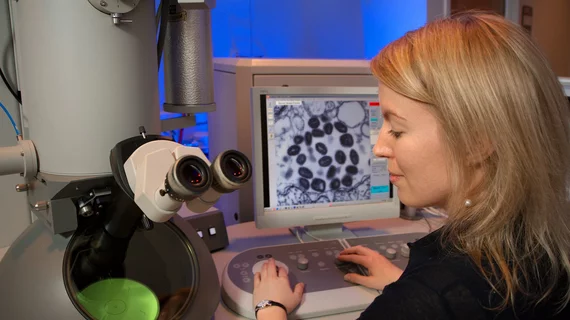Google bringing AI, augmented reality to military cancer detection
The Defense Innovation Unit has tapped Google Cloud to prototype a pathology microscope equipped with both augmented reality and AI.
If successful in an initial research phase, the tool will help military physicians identify or predict various kinds of cancer on lab slides.
It works by overlaying digitized images with diagnostic information. And it can do so at the point of care, which would make it suitable for deployment in the field.
Jointly announcing the move, the DoD and Google remark that the Defense Health Agency spends around $1.7 billion a year on cancer research, suggesting the agency is keenly interested in reducing costly cancer misses and misdiagnoses.
The Defense Health Agency says it will test-drive the prototyped AI-powered cancer buster in its own treatment centers and some VA hospitals, then look to roll it out across the U.S. Military Health System.
Google Cloud VP Mike Daniels adds that the partnership’s primary aim is to “help frontline healthcare practitioners learn about capabilities that can improve the lives of our military men and women and their families.”
The home office of the Defense Innovation Unit, or DIU, is a Silicon Valley neighbor of Google. DoD launched the operation in 2015 to speed technology transfers from commercial businesses. The DIU also operates in the Pentagon as well as in Texas and Massachusetts.

